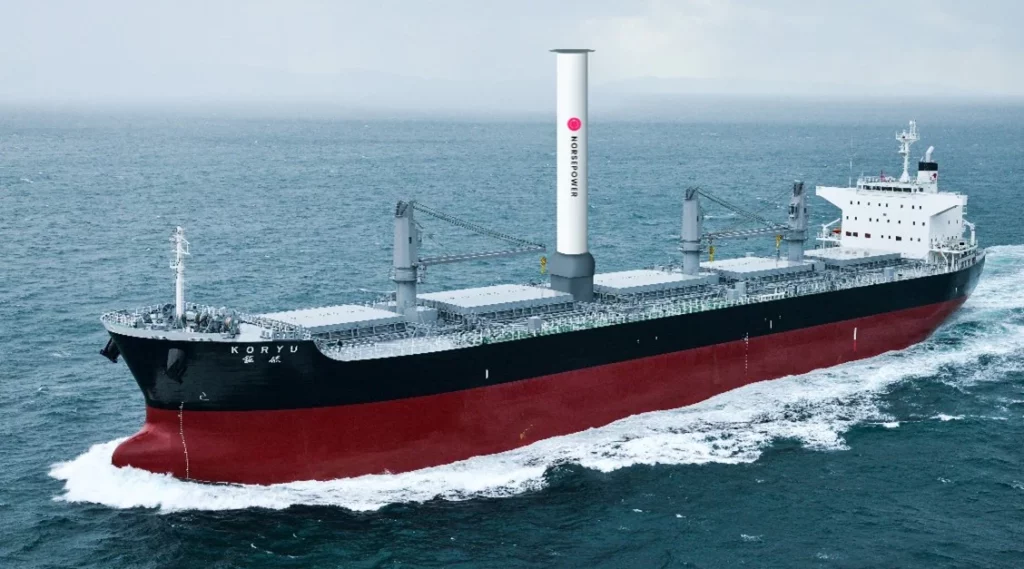
BHP and PPC have multi-year agreements for delivery of copper concentrates from Chile to Japan as well as sulphuric acid from Japan to Chile, making the cargo capacity utilization of M/V Koryu (a 53,762 deadweight tonne combination carrier) one of the highest in the industry.
Norsepower’s Rotor Sails installation – a “push-button wind propulsion” system and estimated to be around ten times more efficient than a conventional sail that requires no reefing or crew attention when in operation – is scheduled for completion by the third quarter of 2023, which is expected to make M/V Koryu the cleanest vessel in its category when measured for GHG emissions intensity, BHP said.
Norsepower’s Rotor Sails are modernized versions of Flettner rotors, and the technology is based on the Magnus effect that harnesses wind to maximize ship fuel efficiency.
“Identifying and implementing innovative and sustainable solutions through our strong commodity and supply chain partnerships remain essential in supporting BHP’s decarbonisation ambitions,” BHP Chief Commercial Officer, Vandita Pant, said in the statement.
“We look forward to working with PPC on the wind-assisted propulsion system to enable further GHG emissions reduction in our supply chain,” she said.
This latest partnership with PPC and Norsepower follows BHP’s collaboration agreements in the maritime decarbonisation segment that include the first marine biofuel trial involving an ocean-going vessel bunkered in Singapore, taking delivery of the first of five LNG-fuelled Newcastlemax bulk carriers and joining a consortium to assess the development of an iron ore Green Corridor between Australia and East Asia.




